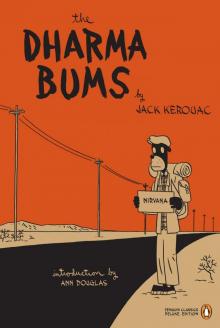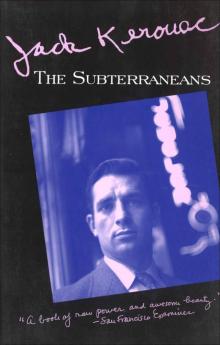 Tristessa
Tristessa On the Road
On the Road The Dharma Bums
The Dharma Bums Maggie Cassidy
Maggie Cassidy Big Sur
Big Sur Dr. Sax
Dr. Sax Vanity of Duluoz: An Adventurous Education, 1935-46
Vanity of Duluoz: An Adventurous Education, 1935-46 The Sea Is My Brother
The Sea Is My Brother The Town and the City: A Novel
The Town and the City: A Novel Atop an Underwood: Early Stories and Other Writings
Atop an Underwood: Early Stories and Other Writings Desolation Angels: A Novel
Desolation Angels: A Novel Book of Sketches
Book of Sketches Wake Up: A Life of the Buddha
Wake Up: A Life of the Buddha The Electrocution of Block 38383939383
The Electrocution of Block 38383939383 Haunted Life
Haunted Life Visions of Gerard
Visions of Gerard Orpheus Emerged
Orpheus Emerged Book of Blues
Book of Blues The Subterraneans
The Subterraneans The Haunted Life
The Haunted Life The Unknown Kerouac
The Unknown Kerouac The Town and the City
The Town and the City Visions of Cody
Visions of Cody Atop an Underwood
Atop an Underwood Lonesome Traveler
Lonesome Traveler Jack Kerouac and Allen Ginsberg
Jack Kerouac and Allen Ginsberg Vanity of Duluoz
Vanity of Duluoz Desolation Angels
Desolation Angels On the Road: The Original Scroll: (Penguin Classics Deluxe Edition)
On the Road: The Original Scroll: (Penguin Classics Deluxe Edition) The Sea Is My Brother: The Lost Novel
The Sea Is My Brother: The Lost Novel Wake Up
Wake Up The Poetry of Jack Kerouac
The Poetry of Jack Kerouac Doctor Sax
Doctor Sax